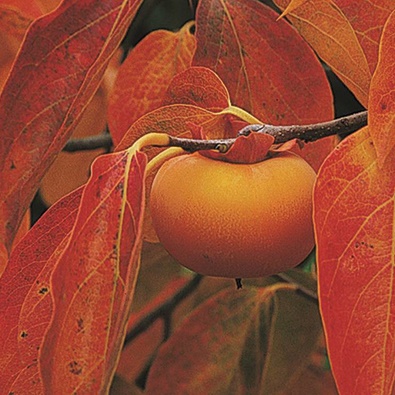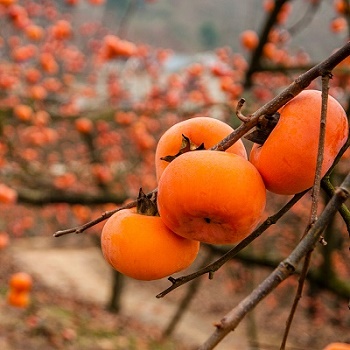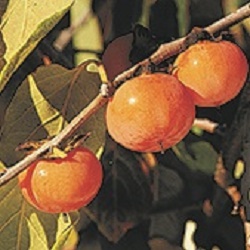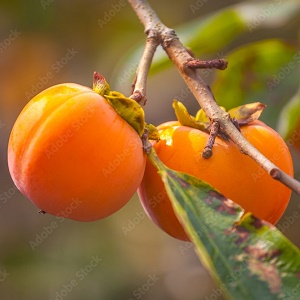Persimmon : NIKITA'S GIFT 60-90cm (2-3') 3 gallon pot
$104.95
This unique cross of American and Asian persimmon comes from the Nikita Botanical Garden in Yalta, Ukraine. It offers the advantage of larger fruit on a more compact tree without loosing too much in cold hardiness. The delicious, reddish-orange, seedless fruit that is produced bountifully on this highly ornamental tree can be up to 6.5 cm (2.5”) in diameter! (D. virginiana x Diospyros kaki)
SELF-FERTILE | ZONE 5/6 | HARVEST: LATE OCT.
Only logged in customers who have purchased this product may leave a review.
Growing Tips
Plant your persimmon trees in a well-drained, sunny location, but don’t let them dry out. After you have successfully started them, persimmons are extremely easy to grow and care for.
Seedlings may eventually reach a mature height of 15m (50') while grafted varieties usually remain considerably smaller, usually only 5-9m (16-30').
NOTE ON DELAYED LEAFING: Be patient with Persimmons. They are usually the last to break dormancy. Watering them while dormant will not help, it can even hurt the roots, if overdone. They simply need lots of heat to wake up, so in a cool spring it could take a month or even longer yet.
It is common knowledge that blueberries require acidic (low pH) soil. In many areas of Canada the soil is naturally not acidic enough (pH too high). Here we recommend our popular Blueberry Booster (see page 59). A number of other trees also prefer more acidic soil and will benefit from annual applications of Blueberry Booster. These include Chestnuts, Pawpaws and Persimmons.
Suggested Rate:
- When planting trees – 250g (1 cup) top dressed and lightly
raked in before soaking with water. - For established trees – 500g (2 cups) per 25mm (1") of tree
trunk diameter broadcast under tree in early spring.
In addition, another way to accommodate these 'special needs'
plants is to add vinegar or citric acid to their irrigation water.
(2.5 litres common white vinegar to a 20 litre bucket of water).
In most cases, we recommend planting bareroot fruit trees at their permanent site as soon as you get them. However, the trees in this section of the catalogue (Pawpaws, Persimmons and Jujubes) will often benefit from spending a few more years in a pot. Since these species do not take as well to bareroot handling, we receive them as very small trees in pots. We suggest you repot them in a 2 or 3 gallon container and grow them for several seasons. Pawpaws in particular, will appreciate this, as the tender young trees will prosper much more if you can keep them out of direct sunlight. This way you also have the option of overwintering them in your garage until they are bigger and stronger.
See Orchard Supplies for 3 gallon Root Trapper® Containers.





Reviews
There are no reviews yet.